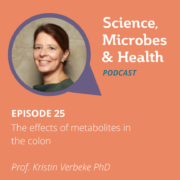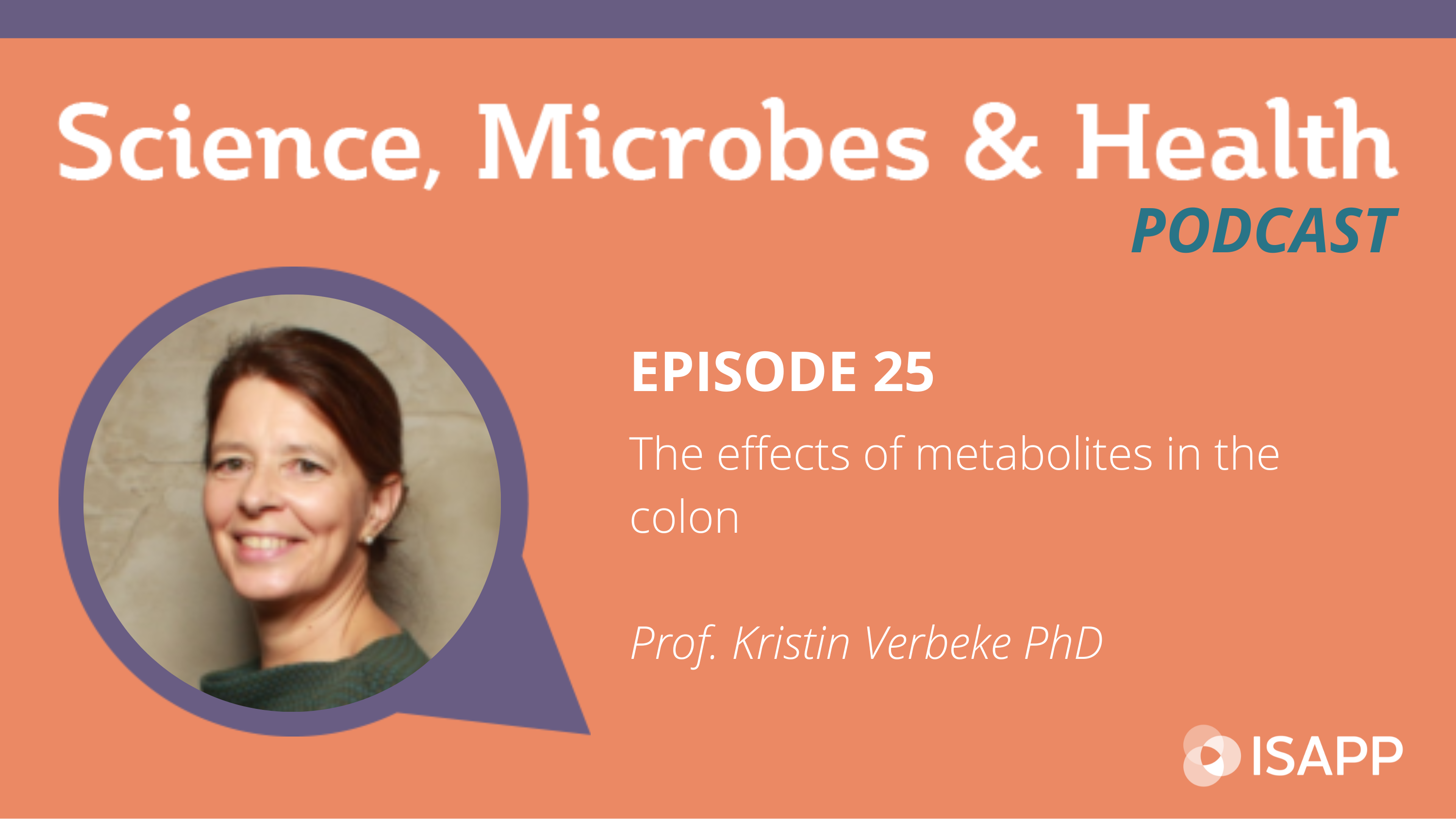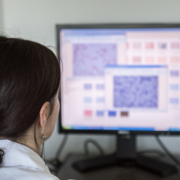Can we estimate prebiotic effects from short-chain fatty acid production?
By Prof. Kristin Verbeke PhD, KU Leuven
Short-chain fatty acids (SCFA), primarily acetate, propionate and butyrate, are the most abundant anions in the large intestine. They are mainly produced from bacterial fermentation of undigested carbohydrates. Since SCFA were found to activate the orphan G-protein coupled receptors GPR-41 and 43 (renamed as free fatty acid receptor ffar-3 and ffar-2), research into their physiological effects on human health has increased exponentially.
SCFA production is proposed to be a mechanism for several health benefits associated with intake of dietary fiber and prebiotics, not only via local effects in the gut but also on distant organs. Molecular mechanisms explaining SCFA effects have mainly been elucidated in cell-based in vitro experiments and animal studies. However, studying the impact of SCFA on human physiology is complicated by the kinetics of these molecules.
Although fecal concentrations of SCFA are relatively easy to measure, consensus has grown that they provide little information. Fecal SCFA do not adequately reflect the production of SCFA in the proximal colon and only represent the fraction of SCFA that has been produced and not used. The capacity of the anion transporters,mainly the monocarboxylate transporter-1 (MCT-1) and sodium-coupled monocarboxylate transporter 1 (SMCT-1), that absorb SCFA into the colonocytes does not seem to be a limiting factor. More bacterial SCFA production results in more uptake of SCFA but not necessarily in a higher fecal excretion. For instance, when we administered colon-delivery capsules containing SCFA in a dose of 250 mmol (equivalent to what is produced from 20 g of fermentable fiber), fecal SCFA concentrations did not increase, indicating nearly complete absorption into the colonocytes (1).
Quantification of SCFA in serum or plasma provides a more relevant alternative, particularly for understanding effects of SCFA on distant organs. Systemic SCFA concentrations are about a 1000-fold lower than fecal concentrations, requiring more sophisticated analytical protocols for measurement. Currently, both GC-MS or LC-MS/MS protocols with or without prior derivatization are available for accurate and reliable SCFA quantification (2). However, it is important to be aware of the ubiquitous nature of acetate and to take sufficient precautions to avoid contamination. For instance, the type of blood tubes used for blood collection should be considered since EDTA-tubes induce contaminations with acetate while separator tubes result in propionate and butyrate concentrations. Also, the type of water used during sample preparation can be a source of acetate contamination, necessitating the measurement of blanks in every run to check for background acetate.
Beyond analytical challenges, uncertainties about when to measure systemic SCFA concentrations also hamper their interpretation in humans. SCFA have a plasma half-life in the order of a few minutes, causing plasma SCFA to vary during the day in response to food intake, particularly fiber. Indeed, postprandial plasma SCFA start to rise about 4 hours after the consumption of a breakfast rich in fermentable fiber and return back to baseline by the end of the day. Measured concentrations therefore depend significantly on the composition and timing of the last meal. Even when using fasting blood samples, it remains important to standardize the evening meal of the previous day to avoid residual fermentation of that meal, known as the second meal effect. Due to their short plasma half-life, SCFA do not accumulate in the circulation, explaining the lack of differences in fasting SCFA concentrations from before to after prebiotic interventions. Additionally, interindividual variation in fasting SCFA concentrations is substantial as shown in a cross-sectional study in 160 individuals (3). The factors contributing to this variability require further investigation but may include dietary habits, microbiota composition, exercise levels or host genetics. In our lab, we prefer measuring postprandial SCFA concentrations during the day and calculating the area-under-the concentration vs time curve as a measure of SCFA production rather than relying on fasting concentrations, despite the increased burden on the participants involved in clinical trials and the associated cost and effort of sample analysis.
Importantly, SCFA production may explain part of the prebiotic activity, but it likely does not provide the complete picture. For example, while the interaction of prebiotics with the immune system may be partly explained by activation of ffar2 and ffar3 receptors on immune cells by SCFA, some prebiotics such as human milk oligosaccharides or specific pectin structures directly activate immune cells via interaction with toll-like receptors 2 and 4 (4). Additionally, by altering the microbiota composition, prebiotics also indirectly alter the microbe-immune interaction. Such effects also need consideration when evaluating prebiotic interactions with host health.
Studies, preferably conducted in the target host (e.g. humans), that aim to elucidate the qualitative and quantitative contribution of SCFA to the host health benefits of prebiotics (i.e. dose-effect relationships, fraction of health benefit explained by SCFA) are highly warranted. Only then can we establish the value of SCFA as markers of prebiotic activity.








